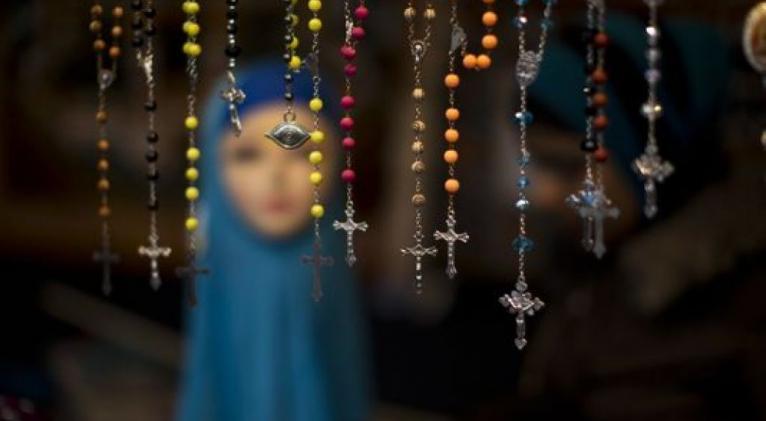Top EU court rules employers can ban visible religious symbols including Islamic headscarves

The judgment comes the day before a Dutch election for which immigration from Muslim majority nations is a major issue.
One of the cases the ECJ ruled on was that of Samira Achbita, a Muslim woman employed as a receptionist by the security services firm G4S in Belgium in 2003, when there was an “unwritten rule” within the company barring employees from wearing visible signs or their religious and political beliefs at work.
In 2016, Achbita told the company she intended to wear a headscarf, after which the workplace regulations were amended to include the ban. Achbita was dismissed for continuing to wear a hijab, and challenged her firing in the Belgian courts.
The ECJ concluded that a ban on Islamic headscarves arising from an internal rule “does not constitute direct discrimination based on religion or belief within the meaning of the directive.”
READ MORE:
In the other case, Asma Bougnaoui, a Muslim woman, arrived at Micropole — a consulting, engineering, and training firm — in France for an internship in Feb. 2008 wearing a bandana but later wore a headscarf. The firm hired her as a design engineer at the end of her internship but a customer complained about her hijab and the firm asked her not to wear it. Bougnaoui objected and was fired, leading her to challenged her dismissal in the French courts.
The ECJ decided that customers cannot demand that workers do not wear headscarves if the company doesn’t have a policy banning them.
It said in the absence of internal rule banning the wearing of religious, political and philosophical signs, "the willingness of an employer to take account of the wishes of a customer no longer to have the employer’s services provided by a worker wearing an Islamic headscarf cannot be considered an occupational requirement that could rule out discrimination.”
John Dalhuisen, a director at human rights organization Amnesty International, said the ruling had "opened a backdoor to prejudice."
"Today's disappointing rulings by the European Court of Justice give greater leeway to employers to discriminate against women - and men - on the grounds of religious belief. At a time when identity and appearance has become a political battleground, people need more protection against prejudice, not less. It is now for national governments to step up and protect the rights of their citizens," he said in a statement.
Chief Rabbi Pinchas Goldschmidt, the president of the Conference of European Rabbis, said: "This decision sends a signal to all religious groups in Europe," according to Reuters.
 |
The European Court of Justice (ECJ), officially just the Court of Justice, is the highest court in the European Union in matters of European Union law. As a part of the Court of Justice of the European Union it is tasked with interpreting EU law and ensuring its equal application across all EU member states. The Court was established in 1952 and is based in Luxembourg.
…More
| Inception: | |
|---|---|
| Official Website: | |
| Location On Map: | |
| Part of: | |
|---|---|
| Applies To Territorial Jurisdiction: | |
| Different From: |














Add new comment